Disassembly Procedure
Tools Required
J 24548 Piston Seal
Compressor
- Remove the brake fluid from the brake caliper.
- Clean the exterior of the brake caliper.
- Pad the exterior of the brake caliper with a clean shop towel.
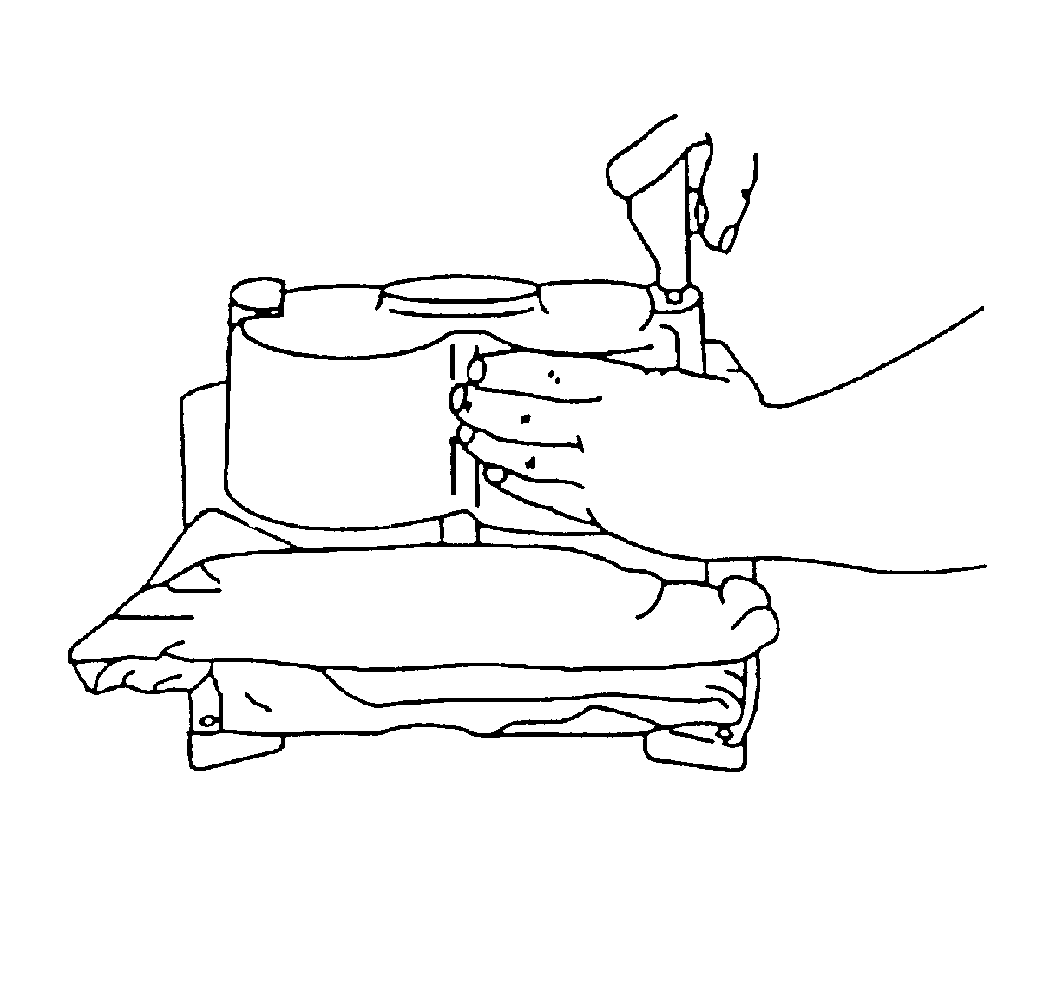
Caution: Do not place your fingers in front of the piston in order
to catch or protect the piston while applying compressed air. This could result
in serious injury.
Notice: Use only enough air to ease the piston out of the bore. If the piston
is blown out, even with the padding, it can be damaged.
Important: Use just enough air to ease the piston out of the bore. If only one
piston is blown loose, you may have to reinsert the piston part way and block
the piston in position. Apply air pressure in order to free the remaining
position.
- Remove the piston from the bore by directing compressed air into the
brake caliper fluid inlet.
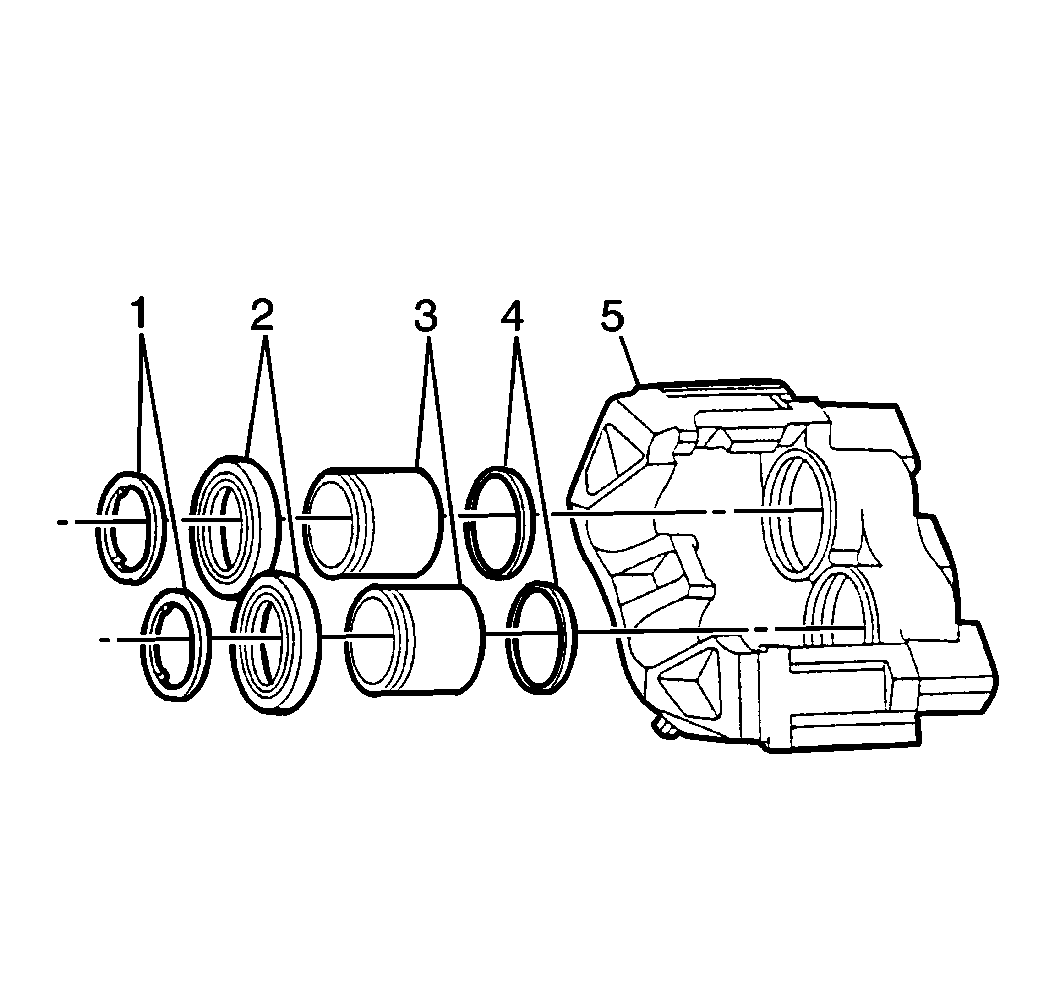
- Remove the rear caliper
heat shields (1).
- Remove the dust boot.
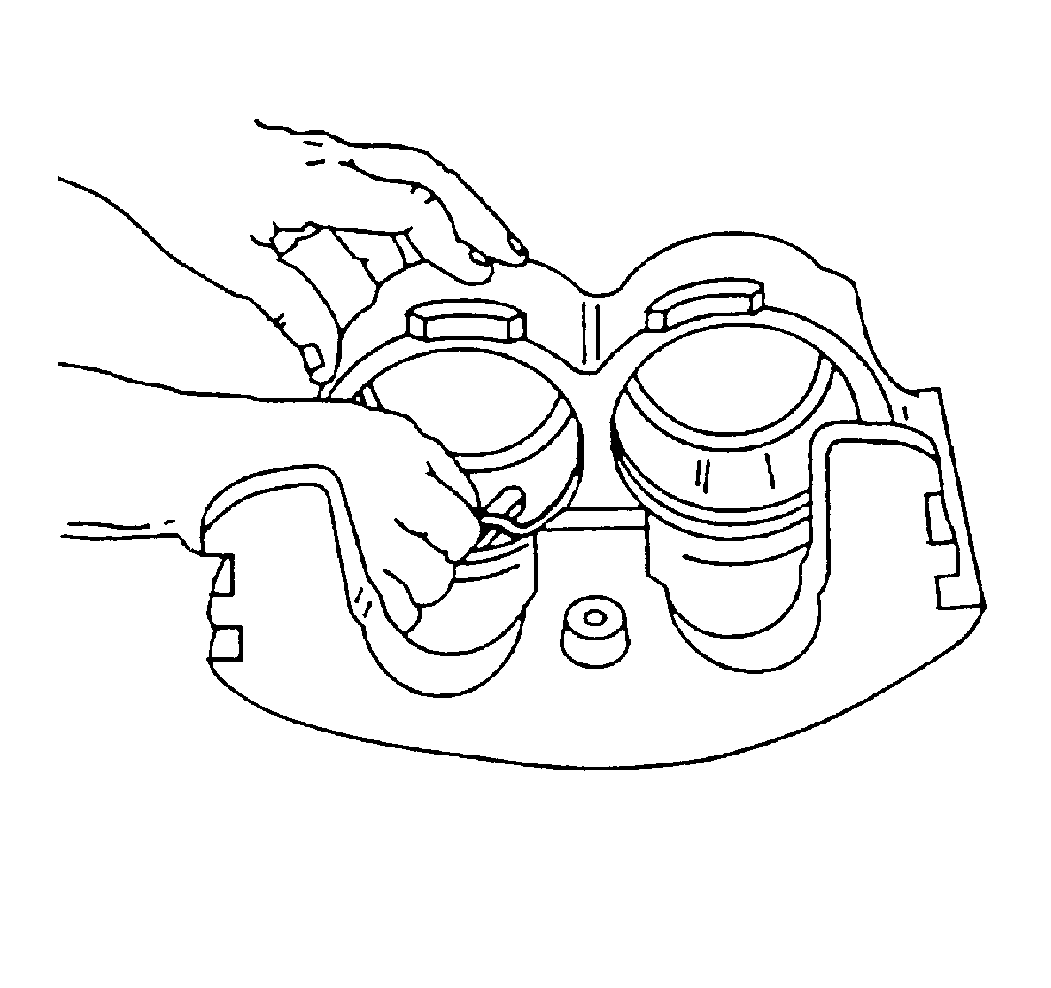
- Remove the piston seals
(rear shown) from the groove in the brake caliper bore using a pointed piece
of wood or plastic.
- Remove the bleeder valve.
- Clean all parts with Brake Parts Cleaner GM P/N 12345754,
or equivalent, or use new brake fluid.
- Dry the parts and blow out the passages with dry, filtered, compressed
air.
- Clean the rear caliper V-ways with a wire brush.
- Inspect the brake caliper housing for cracks and other damage
and the surfaces of the support rails (rear) for rust or corrosion. Replace
the housing, if necessary.
- Inspect the pistons for the following conditions:
Important: The outside diameter of the piston is the primary sealing surface of
the brake caliper. The piston diameter is manufactured to very close tolerances.
Refinishing by any means, or the use of abrasives, is not acceptable.
- If any surface defects are found, replace the piston.
- Inspect the brake caliper bore for the following conditions:
- Use a crocus cloth in order to polish out any light corrosion.
- Do not use emery cloth or any form of abrasive.
- Clean the brake caliper after using the crocus cloth.
- If the bore cannot be cleaned in this manner, replace the brake
caliper. Refer to
Brake Caliper Replacement
.
Assembly Procedure
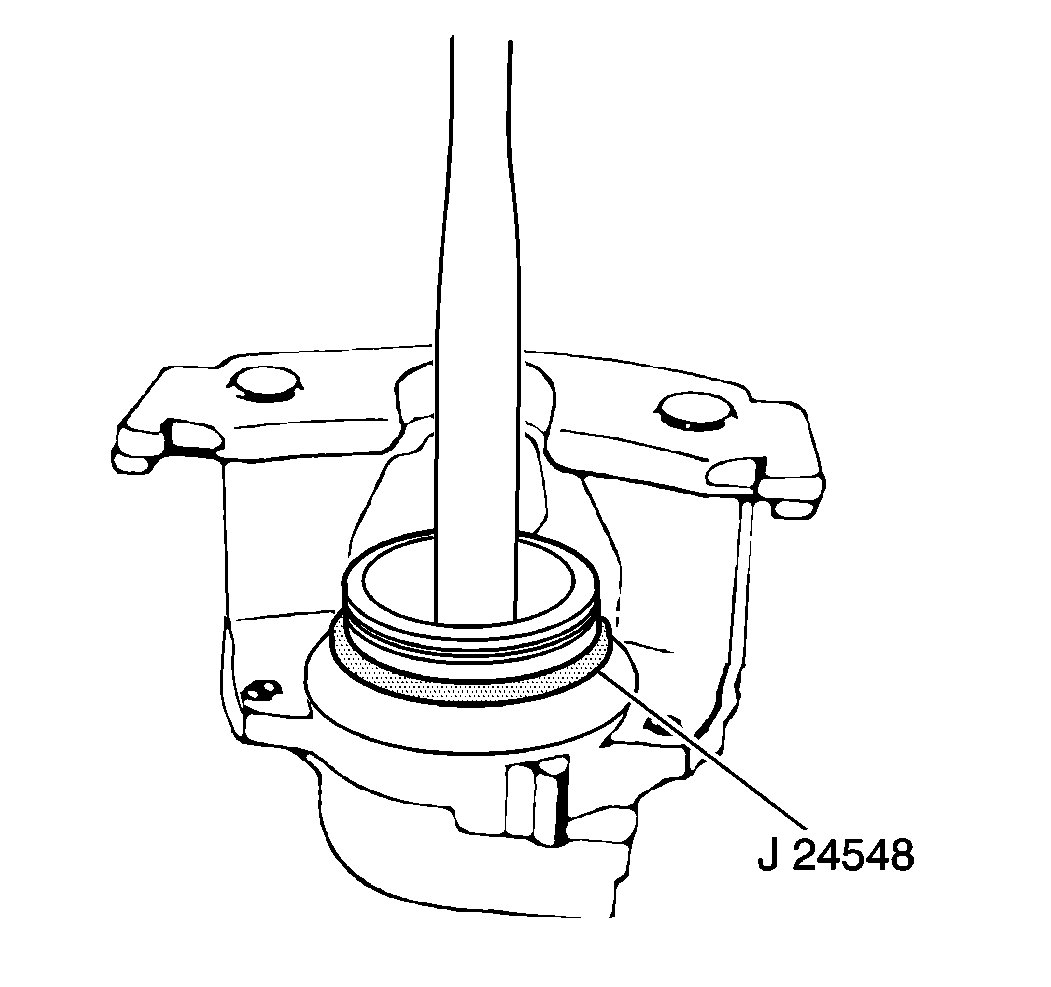
- Lubricate the new front
and rear caliper piston seal, the caliper bore, and the caliper piston with
new brake fluid.
- Install the new front caliper piston seal and piston.
| 2.1. | Make sure the seal is not twisted in the caliper groove. |
| 2.2. | Install the boot on the J 24548
. |
| 2.2.1. | Place the large diameter of the boot over the tool. |
| 2.2.2. | Carefully work the small diameter over the tool. |
| 2.2.3. | Slide the large diameter off of the tool. |
| 2.3. | Install the large lip of the boot in the caliper bore groove.
The lip of the boot must firmly seat in the groove. |
| 2.4. | Install the piston inside the J 24548
tool. |
| 2.5. | Install the piston halfway into the bore. |
| 2.6. | Remove the tool and make sure the boot is firmly seated. |

- Install a new rear caliper
piston seal in the seal groove of the piston bore using the following procedure:
| 3.1. | Dip the new piston seal in clean brake fluid. |
| 3.2. | Gently work the piston seal around the piston bore with a finger
until the seal seats in the groove. |
| 3.3. | Be sure the piston seal is not twisted or rolled in the groove. |

- Install the rear piston.
| 4.1. | Lubricate the piston and the bore with new brake fluid. |
| 4.2. | Gently push the piston into the bore. |
| 4.3. | Rotate the piston slightly in order to prevent dislodging the
seal. |
| 4.4. | Press the dust boot (2) into the counterbore in the brake
caliper housing (5). |
| 4.5. | The dust boot overlaps the stepped edge of the piston (3). |
| 4.6. | Install the heat shield (1) on the piston with the chamfer facing
out. |
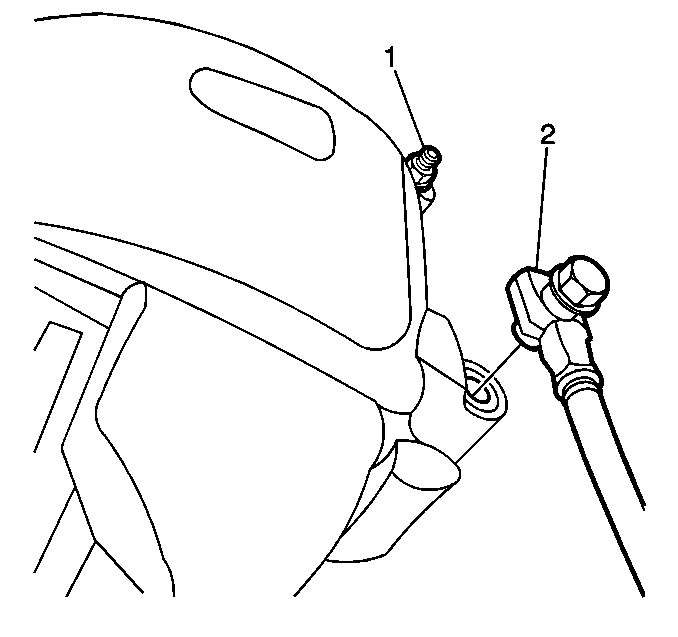
Notice: Use the correct fastener in the correct location. Replacement fasteners
must be the correct part number for that application. Fasteners requiring
replacement or fasteners requiring the use of thread locking compound or sealant
are identified in the service procedure. Do not use paints, lubricants, or
corrosion inhibitors on fasteners or fastener joint surfaces unless specified.
These coatings affect fastener torque and joint clamping force and may damage
the fastener. Use the correct tightening sequence and specifications when
installing fasteners in order to avoid damage to parts and systems.
- Install the bleeder
valve (rear shown).
Tighten
Tighten the bleeder valve (1) to 17 N·m (13 lb in).







